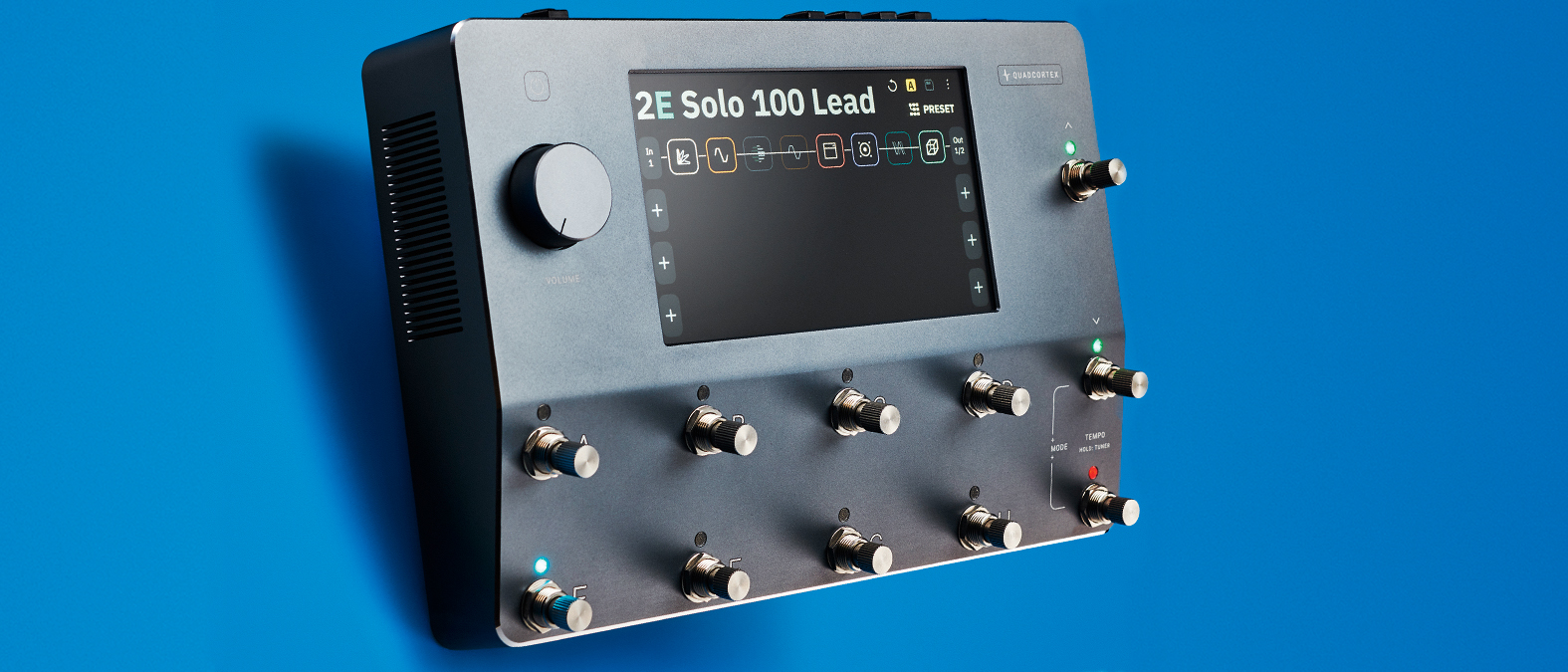Neural DSP supremo Doug Castro named Finland’s 2022 EY Entrepreneur Of The Year
“The Neural DSP team has a lot to be proud of, but this is only just the beginning,” says Castro

Want all the hottest music and gear news, reviews, deals, features and more, direct to your inbox? Sign up here.
You are now subscribed
Your newsletter sign-up was successful
Doug Castro, the CEO and founder of Neural DSP, has won Finland’s 2022 EY Entrepreneur of the Year award. Castro came first in field of 51 at the awards ceremony, held at the Vanha Ylioppilastalo ballroom, Helsinki, on 4 November, and will now go on to represent Finland in the 2023 international competition.
The award recognises Castro’s stewardship of the company, with the independent judging panel, headed by renowned angel investor Leena Niemistö, recognising “entrepreneurs who inspire others with their vision, leadership and achievements”.
Niemistö and the judges saluted the profitability of Neural DSP, which was not always guaranteed. Speaking to MusicRadar in July, Castro described its flagship product, the Quad Cortex amp modeller, as “a black hole of money for a long while”, crediting investors for sticking the course and putting a product before guitar players that the firm describes as the most powerful of its kind in the world.
The supply shortages resulting from the Covid pandemic also put Castro and his team under pressure; if they could not find the parts, the company would have gone under.
“It was not like we had recouped all of our millions and millions of R&D and could sit this out,” Castro says. “We had to keep production running. We do our own manufacturing, so we have people who work really hard in the factory who would lose their jobs and not through their fault and we couldn’t let that happen.”

Castro had to take evasive action. Anyone within the company who had any experience whatsoever in negotiating a price or authorising a purchase order was recruited in a desperate scramble for parts. With every other manufacturer in the same position, there was no time for protracted negotiations.
We like to do crazy stuff and we are willing to go through pain. Our pain threshold is really high at Neural
Doug Castro
“I basically grabbed a bunch of our engineers, our accounting team, and a few of us executives, my CEO, CFO, and we became supply chain managers for three months,” he said. “It was so crazy that I told them, ‘You have permission to buy these critical parts up to $100,000. If you find this amount for this price. If it is more than $100,000, call me. If it’s 3 a.m., call me. I do not care. Call me so I can approve it. But if it is less than that, then just place the purchase order and we’ll ask questions later.’
Want all the hottest music and gear news, reviews, deals, features and more, direct to your inbox? Sign up here.
“It was just crazy. I would remember I would get up to have a glass of water at 3 a.m. and check my emails to check if some supplier had replied – and you had to act fast, right? Everyone was buying chips from the same people, so if someone sent a purchase order or a wire before you did… That happened at all the time! It was like, ‘Buy immediately!’ And we are talking about millions of dollars’ worth of parts so we are talking to banks, investors… It was crazy. Crazy!”
Finding the parts to maintain production was one thing, but Neural DSP had to think long term about the resilience of its supply chain, and that meant redesigning the Quad Cortex from the inside out to ensure it was compatible with a number of different components.
“It was like going back to square one, to be honest,” Castro said. “To be honest, that’s what we do here. We like to do crazy stuff and we are willing to go through pain. Our pain threshold is really high at Neural.”
Neural DSP entered the electric guitar market with Archetype guitar plugins series, software co-developed with high-profile players such as Tim Henson, Cory Wong, and Plini, which then allowed it to build a profile before launching its first hardware device, the Quad Cortex. In 2021, its revenue was split equally between software and hardware, and it plans to quintuple its revenue by 2025.
“The Neural DSP team has a lot to be proud of, but this is only just the beginning,” said Castro, in a statement following receipt of his award. “With the music industry booming, there are many more tones and sonic experiences we want to create for our community. It’s an exciting time of growth for our team – both in product development but also in team and talent – well-positioning us for even more success in 2023 and beyond.”
Neural DSP’s most-recent release found the Finnish company collaborating with Rabea Massaad on a signature plugin suite that contained a fully function synthesizer that uses the signal from your guitar as a trigger.
“It basically acts like a tuner, so it reads your pitch,” Massad told MusicRadar. “Then it takes that pitch and triggers the ADSR of the synth and then the oscillators. So it's genuinely like a synthesiser; there's no effect laid over your guitar. The guitar serves in the exact same way as the keyboard on the synth. So when you press those keys, what’s happening is it’s triggering an oscillator. When you play G on your guitar, it’s gonna trigger an oscillator in G.”
This, said Massaad, is perfect for any guitar player who craves a genuine synth but who might otherwise lack the keyboard skills. All you need to do here is play the guitar the way you would do normally, opening up new possibilities for phrasing and note choice.
“I can play lead just how I always play lead – I don't have to change the way I play to use it,” he said. “So that was a nice thing. And I think that that then opens up new possibilities for the world of synths and phrasing because when I hear it I don't even know if it's a guitar or a keyboard. It just sounds like a synth, but the phrasing can change now. The way guitarists phrase, you can't do stuff like that with a keyboard.”
For more information, head over to Neural DSP.
Jonathan Horsley has been writing about guitars and guitar culture since 2005, playing them since 1990, and regularly contributes to MusicRadar, Total Guitar and Guitar World. He uses Jazz III nylon picks, 10s during the week, 9s at the weekend, and shamefully still struggles with rhythm figure one of Van Halen’s Panama.
